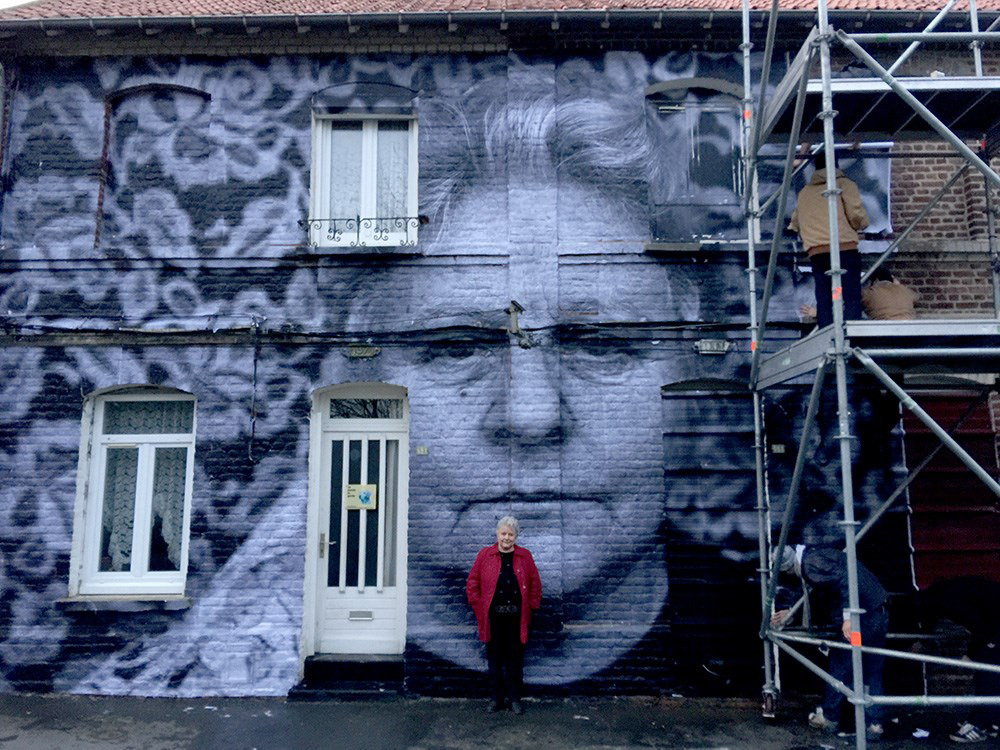In the NY Review Daily, Patricia Storace offers a tender examination of Agnès Varda’s latest film, Faces Places (Visages Villages in French), which is codirected by and costars the street artist JR. As Storace writes, “The film, in which Varda sets out to document something of the daily realities of the people in a range of French villages, is a record of coincidence and risk.” Here’s an excerpt from the piece:
The film they make also has a double subject: the unexpected delights and discoveries of documenting the lives of the people they encounter in corners of France, and of the bittersweet, and inevitably transitory, friendship that developed during the making of the film between the two artists, travelers in different centuries, looking at the world together and experiencing each other. JR is a man who refuses to be seen, never removing his sunglasses, while Varda is losing her sight. Anything might yet happen to JR, while Varda is at the last border of experience, measuring her body’s advancing ruin. The reclusive JR has quickly become wildly famous, while the ebulliently sociable and voluble Varda has always deliberately refused celebrity. For both, though, art is an encounter with the unknown. Each artist is also the subject of the other, in a work of intricate and sometimes whimsical symmetry, in which a portrait can respond to, describe, and differ with, the artist in the act of creation. “You are playing the wise old granny,” JR says at one point to Agnès, who ripostes, “And you the spirited young man.” Throughout Faces Places, in fact, the people photographed are also filmed reacting to their images, in dialogue not just with the filmmakers but with their own faces.
JR lends Varda his energy and mobility, while she gives him memory, the treasure at the heart of all her work, the capacity to remember someone else’s memories, the legacy that is the foundation of culture itself. Varda, who ingeniously and matter-of-factly documents her own memory lapses using filmed sequences to replace the memory of incidents she has forgotten, is educating JR in transmitting and restoring memory. The movie bears witness to a profound and subtle change in his work, a change wrought not by will, but through their evolving relationship.
Image: A still from Faces Places showing one of JR’s installations, 2017. Via NY Review Daily.
